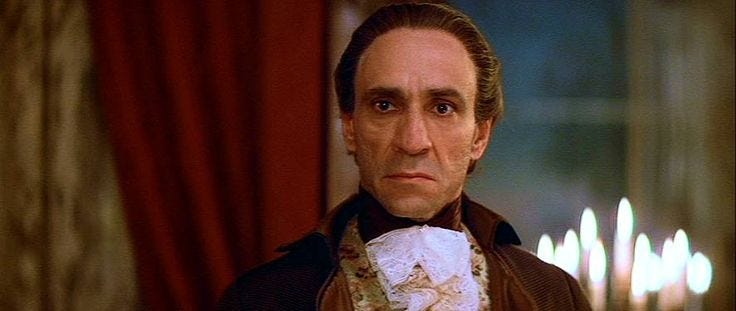“Comparison is the thief of joy.” I’ve been thinking about this quote shortly after watching Amadeus. By comparing yourself to others, you deprive yourself of satisfaction and happiness that you can easily work at, but instead you fixate on how you can become better than others around you and even one up them, all to the point of unhappiness. The quote encapsulates the movie fairly well because it follows the rivalry between Antonio Salieri and Wolfgang Amadeus Mozart and how it’s fueled by envy and jealousy, which happen to be the overarching themes, setting the whole story in motion.
Envy and jealousy are what I’d like to classify as the forbidden feelings. They are feelings that I’m sure everyone’s experienced before, and you’d be hard-pressed to find someone who has never felt that way. I’ve certainly felt that way before, but I don’t dwell on those feelings insofar that I need to sabotage someone’s livelihood to gain satisfaction. If anything, I’m motivated to become a better version of myself after encountering some competition. This would be the best approach and healthy to my well-being because of continuous improvement and the ability to keep my emotions in check.
However, in the case of Salieri, he ultimately succumbs to the aforementioned feelings from desiring fame in the music world and being a subject of mockery. This is evidenced by him undermining Mozart and his career when given the opportunity, like with driving students away from him or anonymously commissioning what would be his requiem so Salieri can steal credit for it after his master plan of killing Mozart. Though he does die at the end from living a rather unhealthy lifestyle, he ultimately gets the last laugh, both literally and figuratively.
Throughout the movie, Salieri ruminates on his past actions and regrets by recounting the story of his rivalry with Mozart. By the end, Salieri’s intentions of stealing the limelight from Mozart were unsuccessful, in which the music of the former has faded to obscurity, while the latter has been immortalized in music history as one of the greats.
Amadeus is written to be a cautionary tale about the creative process and the disillusionment that stems from it. Feelings of envy and jealousy plagued Salieri’s mind to the point where he only cared about achieving fame and fortune at the expense of Mozart’s livelihood and success, almost as an act of schadenfreude. It wasn’t until Mozart stood on the verge of death that Salieri realized the passion both demonstrated in writing the requiem, all for the sake of creating art rather than for materialistic gain. The damage is deemed irreparable, with Salieri having to live with regret until he dies.
If I had to describe Amadeus in one sentence, I would say that “it’s the least boring period piece you’ll ever watch.” A movie of this caliber could’ve been uninteresting had it been placed in the wrong hands, but not in this case, and I have Milos Forman’s direction as well as the amazing performances by F. Murray Abraham (Salieri) and Tom Hulce (Mozart) to thank for that. In some ways, this feels like a stage play come to life not just because of the lavish production design, but also because it’s an adaptation of the play of the same name. The writing and musical backdrop of 18th century Austria lend themselves well to the big screen, and it shows in Milos Forman’s direction. All of these factors make the movie an unforgettable time, absolutely firing on all cylinders. Just delightful from start to finish. *Insert Mozart’s laugh* ∎







